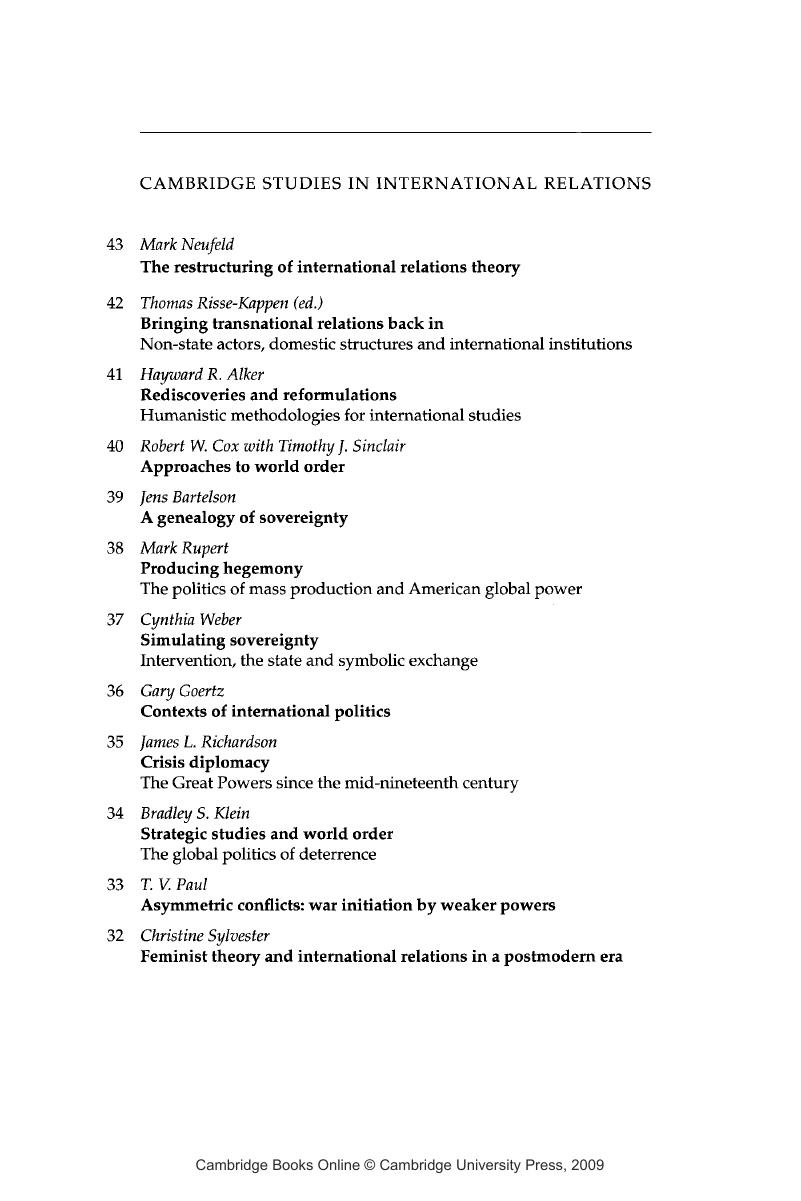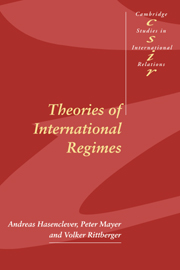Book contents
- Frontmatter
- Contents
- List of figures and tables
- Acknowledgments
- 1 Introduction: three perspectives on international regimes
- 2 Conceptual issues: defining international regimes
- 3 Interest-based theories: political market failure, situation and problem structures, and institutional bargaining
- 4 Power-based theories: hegemony, distributional conflict, and relative gains
- 5 Knowledge-based theories: ideas, arguments, and social identities
- 6 Conclusion: prospects for synthesis
- References
- Index
- CAMBRIDGE STUDIES IN INTERNATIONAL RELATIONS
CAMBRIDGE STUDIES IN INTERNATIONAL RELATIONS
Published online by Cambridge University Press: 05 September 2009
- Frontmatter
- Contents
- List of figures and tables
- Acknowledgments
- 1 Introduction: three perspectives on international regimes
- 2 Conceptual issues: defining international regimes
- 3 Interest-based theories: political market failure, situation and problem structures, and institutional bargaining
- 4 Power-based theories: hegemony, distributional conflict, and relative gains
- 5 Knowledge-based theories: ideas, arguments, and social identities
- 6 Conclusion: prospects for synthesis
- References
- Index
- CAMBRIDGE STUDIES IN INTERNATIONAL RELATIONS
Summary

- Type
- Chapter
- Information
- Theories of International Regimes , pp. 249 - 251Publisher: Cambridge University PressPrint publication year: 1997
- 7
- Cited by

